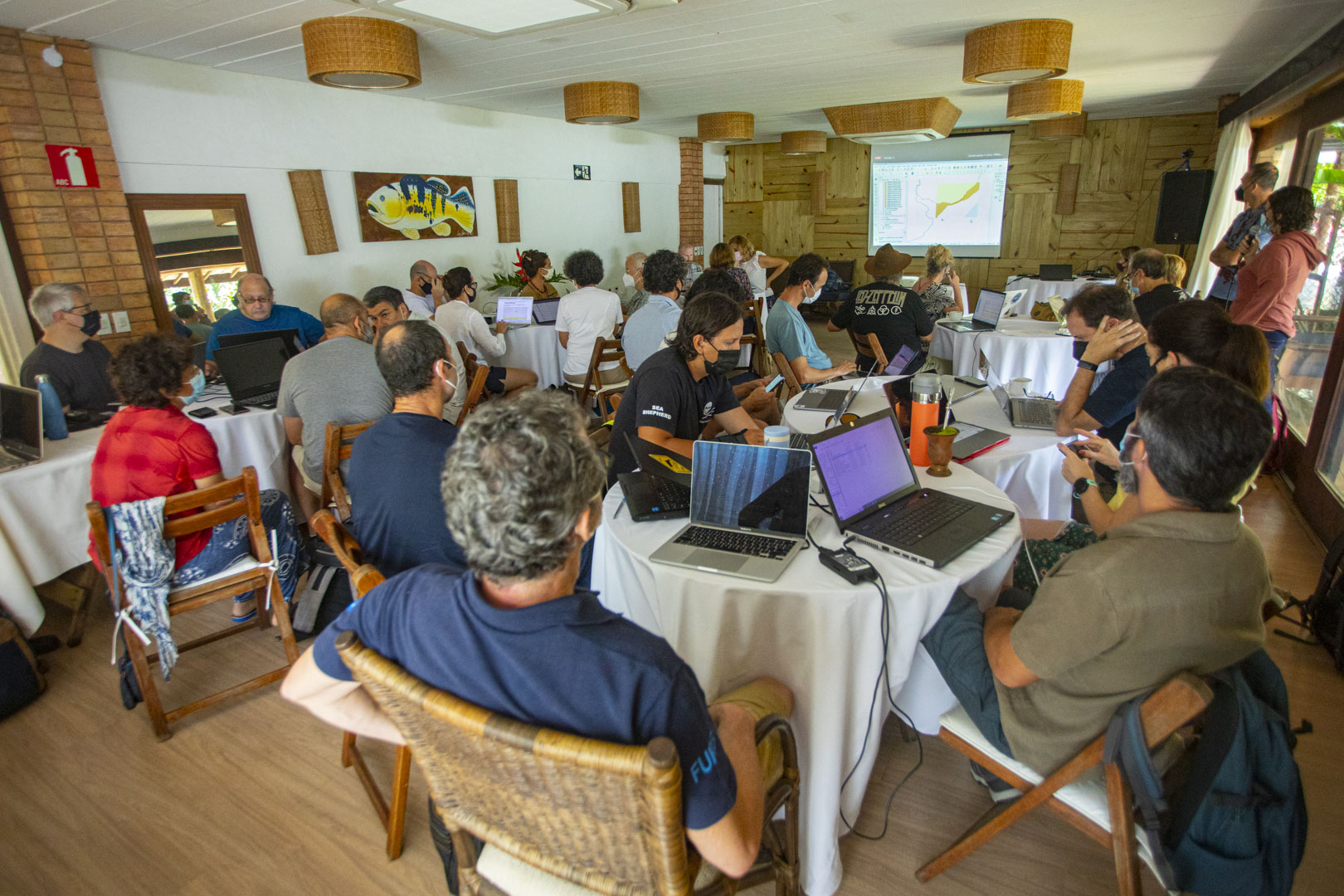33 new Important Marine Mammal Areas (IMMAs) approved in an expanding portfolio of global ocean areas awaiting conservation measures
33 new Important Marine Mammal Areas (IMMAs) have been identified and put on the map in the South West Atlantic Ocean from the Guianas, north of the Brazilian Amazon, to the tip of Tierra del Fuego, Argentina. This is the final result from a year-long process, including an intensive week-long scientific workshop last December assessing and presenting data on candidate IMMAs which were then submitted for peer review. Besides the 33 newly approved IMMAs, 5 areas have been assigned Area of Interest (AoI) status.
The South West Atlantic Ocean (SWATLO) region features southern right whales (Eubalaena australis), humpback whales (Megaptera novaeangliae) and sei whales (Balaenoptera borealis), some of which travel from Antarctica to this region. Besides the prevalent spinner (Stenella longirostris) and common bottlenose dolphins (Tursiops truncatus), there are species endemic to the region including the Commerson’s dolphin (Cephalorhynchus commersonii ssp. commersonii), the vulnerable franciscana (Pontoporia blainvillei), the vulnerable Lahille’s bottlenose dolphin (Tursiops truncatus ssp. gephyreus) and the near threatened Guiana dolphin (Sotalia guianensis). The vulnerable West Indian manatee (Trichechus manatus) is found along the coasts of the Guyanas and northeastern Brazil. The region’s notable habitats for marine mammals include Abrolhos Bank and Fernando de Noronha islands off Brazil as well as the Straits of Magellan and Patagonian waters of Península Valdés in Argentina and the Paramaribo River in Suriname, among others.
 SWATLO Workshop
Photo: by Eduardo Melo, Instituto Baleia Jubarte
SWATLO Workshop
Photo: by Eduardo Melo, Instituto Baleia Jubarte
The week-long IMMA workshop, held in Praia do Forte, Brazil, in December 2022, was organized and run by the IMMA Secretariat of the IUCN Task Force on Marine Mammal Protected Areas, and hosted by the Brazilian Instituto Baleia Jubarte (Humpback Whale Institute). The 31 workshop participants consisting of the region’s top marine mammal scientists started by considering 112 preliminary areas of interest (pAoI). The pAoI selected to advance to candidate IMMAs were defended with text supporting various criteria based on scientific evidence and detailed mapping along with a strong rationale for the boundaries chosen. The review and mapping of these areas is now complete.
IMMAs are defined as discrete portions of habitat, important to marine mammal species, that have the potential to be delineated and managed for conservation.
The results from the Brazilian workshop mean that 72% of the world ocean has been examined for IMMAs, with IMMAs comprising 13% of the examined area. There are 242 IMMAs globally, mostly in the southern hemisphere, all with portfolios, maps and other background information on the IMMA e-Atlas. The IMMA work continues to forge ahead in the North East Atlantic with final results due by early 2024 and in the North West Atlantic and Caribbean, with a workshop planned for May 2024 and final results to be released no later than early 2025.
For more information:
To download the South West Atlantic IMMA report, go to https://www.marinemammalhabitat.org/resources/documents/
To obtain shapefiles and detailed background information for the 242 approved IMMAs, go to
https://www.marinemammalhabitat.org/immas/imma-spatial-layer-download
Workshop report:
